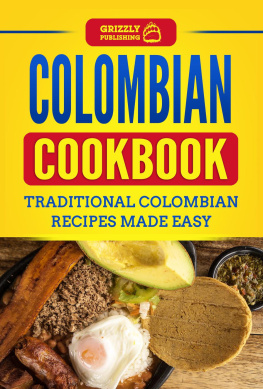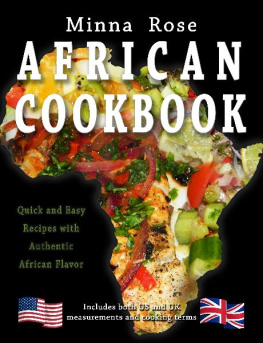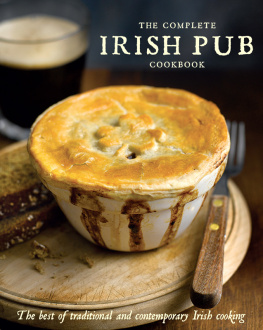Acknowledgments A special thank you to the congregation of Bethel African Methodist Episcopal Church, ChurchTowne of Lancaster, Pennsylvania. Thank you, too, to Saints Memorial Community Church, Willingboro, New Jersey, and to Mr. Jerald and Mrs. Dawn Davis. Copyright 2014 by Pheobe Bailey All rights reserved. No part of this book may be reproduced in any manner without the express written consent of the publisher, except in the case of brief excerpts in critical reviews or articles.
All inquiries should be addressed to Good Books, 307 West 36th Street, 11th Floor, New York, NY 10018. Good Books books may be purchased in bulk at special discounts for sales promotion, corporate gifts, fund-raising, or educational purposes. Special editions can also be created to specifications. For details, contact the Special Sales Department, Good Books, 307 West 36th Street, 11th Floor, New York, NY 10018 or info@skyhorsepublishing.com. Good Books in an imprint of Skyhorse Publishing, Inc., a Delaware corporation. 10 9 8 7 6 5 4 3 2 1 Library of Congress Cataloging-in-Publication Data is available on file. 10 9 8 7 6 5 4 3 2 1 Library of Congress Cataloging-in-Publication Data is available on file.
All photographs by Merle Good, except those on .
Cover and Illustrations by Cheryl Benner
Design by Dawn J. Ranck Print ISBN: 978-1-56148-674-8 Ebook ISBN: 978-1-68099-035-5 Printed in the United States of America Library of Congress Cataloging-in-Publication Data Bailey, Phoebe. An African American cookbook : living the experience / Phoebe Bailey and the staff of Harambee Historical Services. p.cm. ISBN 978-1-56148-674-8 1. I. I.
Harambee Historical Services (Lancaster, Penn.) II. Title. Tx715.B1613 2002
| 641.59296073--dc21 | 2002024136 |
To Mrs. Margaret M. Bailey, my mother,
a designer of recipes,
who gave her family and all who knew her
a wealth of wisdom and a strong example of faith. The royalties from the sale of this book go to Bethel Harambee Historical Services and the Hopkins Research and Study Center.
These two organizations are committed to the preservation, stories, and living history of African American traditions and culture in ChurchTowne of Lancaster, Pennsylvania. Table of Contents Introduction Welcome reader! Here are mouth-watering recipes that are easy to prepare and that will make every meal a delight. And with the recipes comes a look into our family and cultural traditions and some lessons weve learned. You will find quotes from some famous and some not-so famous people. We heard about many of them for the first time while sitting at the dinner table. Some of our songs are here.
We heard them while preparing mealsfor theyre more than church songs. They were born out of the enslaved Africans battle for freedom. This book is about more than just food. We believe that, as important as food is to our being, it is what happens around a meal that actually sustains us. It is in preparing a meal that we discover If you do not have what you want, use what you have. And when we work within that attitude, we find that God sufficiently provides for all our needs.
It is at mealtimes that we learn family traditions, manners, how to share, how to wait our turns, how to listen to others, and many other important life lessons. We use this book ourselves at home. And we share it within our congregation, which is a part of the African Methodist Episcopal Church. We are known as AMEs. I have discovered that AME also stands for always eating and meeting. I can attest to the fact that this is true.
So if you are in the neighborhood of ChurchTowne of Lancaster, Pennsylvania, please stop in and stay awhile. For at Bethel, it is always mealtime. A special thanks to God for His many blessings, and to Phoebe, Christina, and Kesha who helped to make this cookbook a reality. Thanks to the Bethel African Methodist Episcopal Church family for their recipes, stories, prayers, support, and the down-home meals that inspired this book. Thanks to all the wonderful African American cooks who contributed their traditional and favorite recipes to create a cornucopia of dishes. Thanks to the Goods who patiently worked with us to bring this book to press, and to all and anyone else who helped us.
Thank you to whose who had so little but did so much with the little they had. These are those who toiled in the heat of the day and complained not about their lot, who bore their crosses and marched on in Jesus name. These are those who when they looked to the future they saw us. These are our heroes, our elders, our parents, our support. We bless your spirits and He who gave you the strength to provide us hope. Reverend Edward M.
Bailey Bethel African Methodist Episcopal Church, ChurchTowne of Lancaster, Pennsylvania Wade in the Water Wade in the water,
Wade in the water children.
Wade in the water,
Gods gonna trouble the water. See that host all dressed in white,
Gods gonna trouble the water;
The leader look like the Israelite,
Gods gonna trouble the water. See that band all dressed in red,
Gods gonna trouble the water;
Looks like the band that Moses led,
Gods gonna trouble the water. See that band all dressed in black
Gods gonna trouble the water;
They come this far, and aint turning back.
Gods gonna trouble the water.  Spirituals carried code language for enslaved Africans. In this one, runaways are directed to go to the river.
Spirituals carried code language for enslaved Africans. In this one, runaways are directed to go to the river.
The water will cover the fleeing Africans scent and tracks, to make it difficult for the bloodhounds to track them. The water also connects towns, cities, and states, leading the hearers to the conductor who will lead them to their next station or safe house. The song mentions three colors: red, white, and black. Fleeing Africans would look for someone wearing these colors at their next stop. Main Dishes  S ome of my fondest memories of my mother surround her ability to create a meal out of anything. Having to prepare supper for 15 children every evening required a lot of creativity and patience.
S ome of my fondest memories of my mother surround her ability to create a meal out of anything. Having to prepare supper for 15 children every evening required a lot of creativity and patience.
Thankfully, my mother never ran short of either. She could make a simple meal a gourmet experience. I thank God that my mother had the ability to plan and prepare meals as she wanted to for us children. Our ancestors who lived on plantations, however, did not have this luxury. Many mothers were in the fields working from sun-up to sun-down, planting and preparing the fields for harvest. These mothers young children were often left back at the slaves quarters, usually with an elder enslaved African, who because of illness or feebleness could no longer offer free field labor for the Massa.
Those mothers who worked in the Big House, the great house, the house that offered no comfortthese mothers who were separated from their babieswould try to sneak down to the slave quarters with some small morsel of food for their children, praying every step of the way not to be discovered. Phoebe Bailey Main DishesTraditional Gumbo Feast Mary Alice Bailey Makes 10 servings lbs. chicken legs and thighs salt to taste pepper to taste tsp. red pepper flakes 3 Tbsp. oil 1 lb. chicken stock 1 whole bay leaf tsp. dried thyme leaves 1 bell pepper, chopped 2 ribs celery, chopped cup cornstarch cup cold water 1 bunch green onion tops, chopped cup fresh chopped parsley 











 Spirituals carried code language for enslaved Africans. In this one, runaways are directed to go to the river.
Spirituals carried code language for enslaved Africans. In this one, runaways are directed to go to the river. S ome of my fondest memories of my mother surround her ability to create a meal out of anything. Having to prepare supper for 15 children every evening required a lot of creativity and patience.
S ome of my fondest memories of my mother surround her ability to create a meal out of anything. Having to prepare supper for 15 children every evening required a lot of creativity and patience.